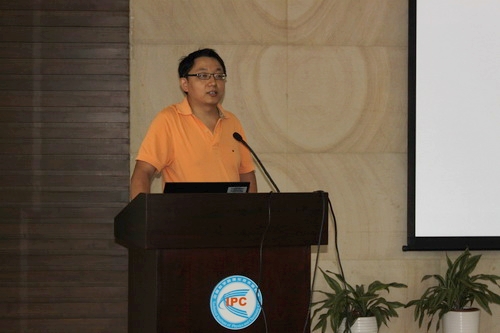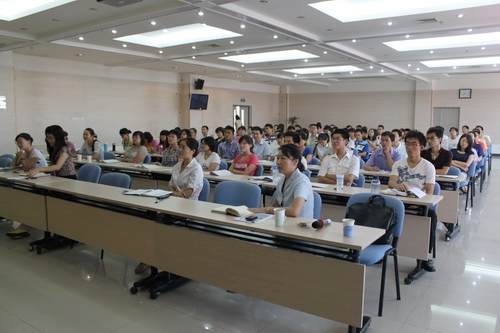Invited by Key Laboratory of Photochemical Conversion and Optoelectronic Materials, Technical Institute of Physics and Chemistry, Chinese Academy of Sciences ( TIPC, CAS), Dr. Qianhong Wu from Villanova University visited TIPC, CAS and and gave an academic report on August 22, 2011. The title was Lessons Learned From the Exquisite Design of the Endothelial Glycocalyx and Their Amazing Applications to Super Lubrication.
In the report, Dr. Qianhong Wu introduced his group’s newest research progress.His group is actively exploring the functions of the endothelial glycocalyx, a negatively charged soft porous layer that covers the inner surface of our blood vessels and its pivotal role in microcirculations. Biological scientists have wondered, since the motion of red cells was first observed in capillaries, how an 8 µm in diameter red cell can move with so little friction in tightly fitting microvessels and survive 105 passages through microcirculation during a typical lifetime of 120 days without being damaged or undergoing hemolysis. Dr. Wu’s group has developed a new experimental and theoretical approach to study the lift generation in highly compressible porous media. This approach was successfully applied to explain the phenomenon of the frictionless motion of a red cell in a tightly fitting capillary and the enhanced lift phenomena during skiing or snowboarding. Recently, the group has further expanded this research to a new bio-mimetic area, the so called super lubrication. This research performed by CBMSS is extensively published and has been featured in Science, Nature and over 100 public media world widely.
Resume:
Dr. Qianhong Wu is the director and founder of the Villanova Cellular Biomechanics and Sports Science Laboratory (CBMSS). He is currently a tenured Associate professor in the Mechanical Engineering Department at Villanova University, Pennsylvania, USA. Before joining Villanova in 2005, he was pursuing his Ph. D in Biomedical Engineering with Dr. Sheldon Weinbaum at the City College of the City University of New York.
Dr. Wu's research interests are to apply fundamental principles of fluid dynamics to the bio and bio-inspired applications.



